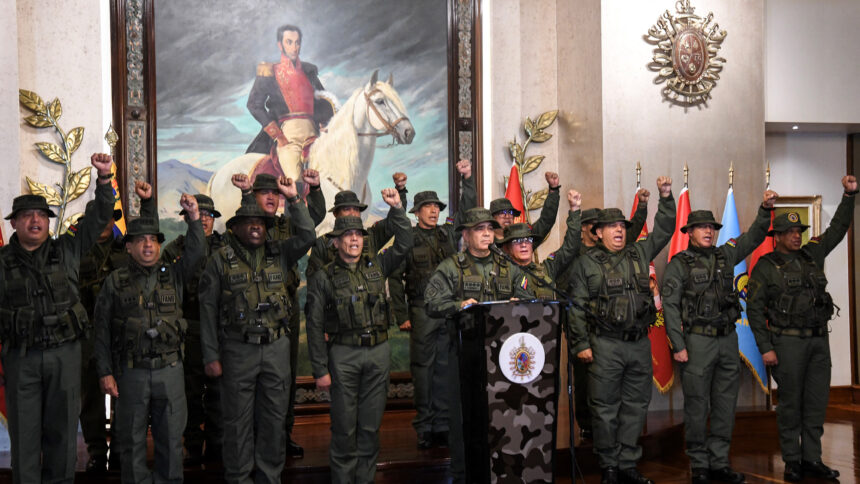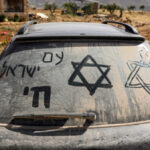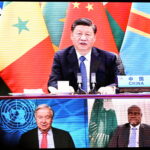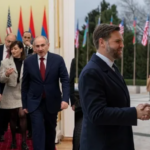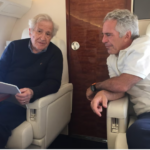Summary by Geopolist | Istanbul Center for Geopolitics:
A wave of brutal repression has been unleashed by Venezuela’s Maduro administration in response to demonstrations against election theft. Approximately 2,000 arrests have been reported by human rights organizations, resulting in the deaths of over two dozen individuals. The administration has initiated a public campaign called Operación Tun Tun (Operation Knock Knock) with the aim of instilling fear and creating divisions among the population. The administration has adapted a smartphone application, VenApp, with the intention of promoting residents to engage in surveillance of one another.
Venezuelans have reported erasing their social media data, uninstalling WhatsApp, or securing their phones within their homes. The administration plans to exploit this terror campaign in order to engender fear among Venezuelans, foster distrust, fragment society, impede collective action, and ultimately subjugate Venezuelan society. The Inter-American Commission on Human Rights has accused the Maduro regime of employing “state terror” tactics against the Venezuelan population.
The central question persists: Can the Maduro dictatorship effectively suppress its way out of the ongoing crisis, or will the regime eventually exhaust its ability for repression? Maduro incurs significant costs due to repression, which many people underestimate. Eventually, the regime’s ability to suppress may diminish or be greatly diminished.
Since the 2024 elections, the Maduro regime in Venezuela has had mounting difficulties as Chavismo’s political support has shifted from being loyal to becoming opposition. Consequently, there has been a change in the methods used to suppress opposition, with a growing tendency to target individuals residing in impoverished and peripheral areas like Petare.
The administration has increasingly depended on colectivos, who are obligated to patrol their local areas and assist in identifying dissidents for prosecution. The impact of Machado’s message, which emphasizes the restoration of security services to their constitutional duties and the provision of respectable employment, is evident.
The opposition has garnered over 80% of voter registrations, indicating a wider erosion of discipline within the armed forces and a readiness to defy certain orders from the Maduro regime. Although Maduro and his close associates have not been discouraged, the International Criminal Court (ICC) may persist in publicly calling for his apprehension. The ongoing protests demonstrate Maduro’s increasing lack of legitimacy and the potential dangers encountered by security forces trying to quell peaceful demonstrators.
Maduro’s strategy of persisting with nonviolent demonstrations in order to promote dialogue or hasten a division within the government is not certain to succeed. Repression is typically an expensive strategy in dictatorships like as Maduro’s regime, and prolonged, widespread protests may eventually exhaust Maduro’s security forces. The Venezuelan populace’s indignation at the failure to tally their votes on July 28 would likely amplify the influence, magnitude, and likely duration of these demonstrations.
Maduro does not possess several crucial prerequisites for carrying out prolonged and continuous repression. Maduro is increasingly depending on colectivos and the Bolivarian National Guard to handle oppressive actions, in order to keep the army away from such unpleasant affairs. The Special Action Forces (FAES), a paramilitary unit responsible for actions that led to the Maduro regime being hauled before the International Criminal Court (ICC), has been disbanded.
When analyzing Maduro’s exhaustion of oppressive resources, it is important to consider three essential factors:
1. Security Services and The Government
Preliminary indications indicate that Maduro is allocating significant resources to repressing regime critics and individuals considered insufficiently loyal. A more comprehensive rejection might potentially endanger the stability of the regime’s security forces.
2. United States policy.
The United States might issue a robust public admonition, indicating that there would be significant repercussions if the government were to try the arrest of Machado or Gonzalez Urrutia. Revoking individual operating permits would reduce the financial resources allocated to maintaining the loyalty of senior regime officials and financing the repressive security apparatus of the state.
3. The International Community, Latin America, and the Caribbean
So far, Maduro’s neighbors have been mostly unwilling to recognize his “victory.” Even Maduro’s leftist allies, Brazil, Colombia, and Mexico, have demanded greater transparency. Last week’s Santo Domingo Declaration, a regional statement from 22 countries plus the European Union, is a promising start for wider regional diplomacy and the ability to speak with a more unified voice. The regime’s legitimacy crisis—something this election was meant to overcome—has been exacerbated by its large-scale, brutal repression. For the region’s diplomacy to be successful, however, it will have to increase its ambition and discard its hesitancy in terms of building a much larger coalition of countries pressuring Maduro.
While it is not guaranteed, the capacity of the Maduro administration to suppress may potentially diminish in a manner akin to Ernest Hemingway’s depiction of bankruptcy: “Gradually, then suddenly.”
Read the full article here.

